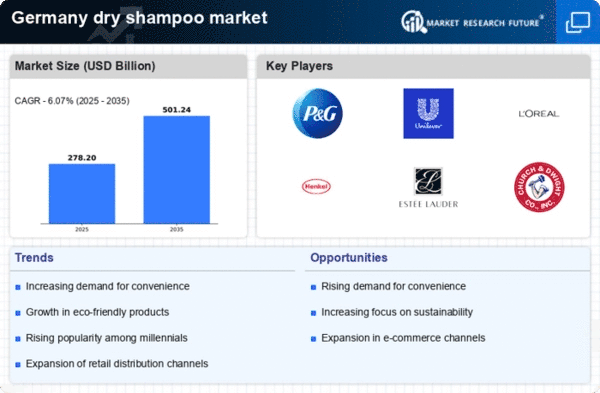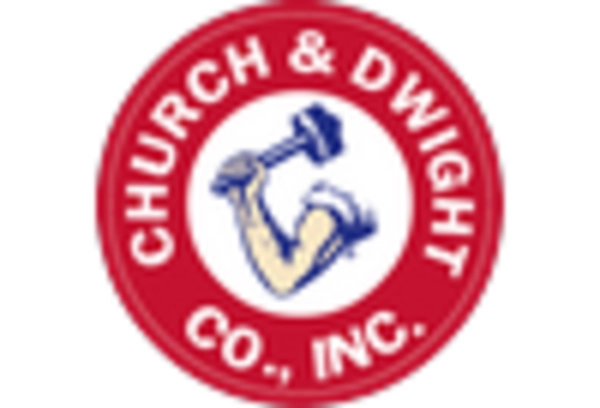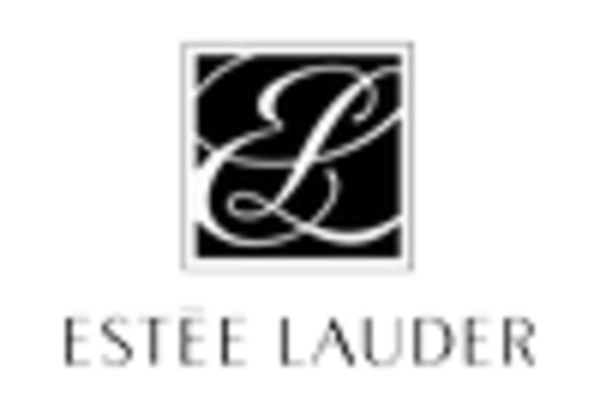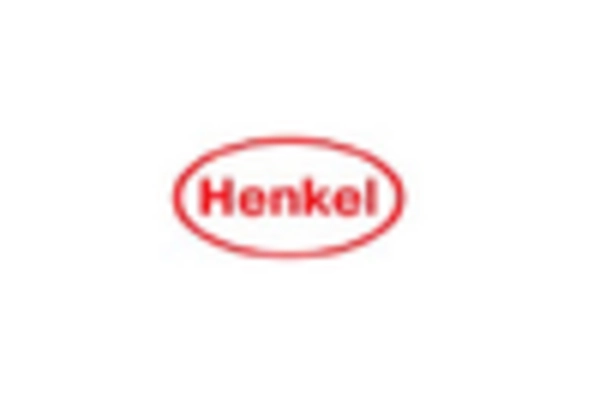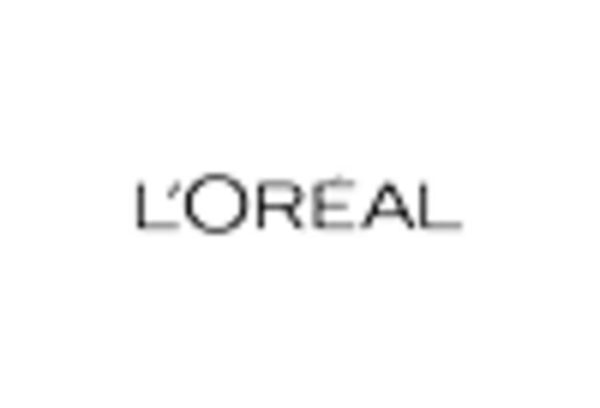Increasing Urbanization
The trend of urbanization in Germany appears to be a significant driver for the dry shampoo market. As more individuals migrate to urban areas, their lifestyles often become busier, leading to a higher demand for convenient grooming solutions. Urban dwellers, who may have limited time for traditional hair washing, are likely to adopt dry shampoo as a quick alternative. This shift is reflected in market data, indicating that the dry shampoo market has experienced a growth rate of approximately 15% annually in urban centers. The fast-paced lifestyle of city residents necessitates products that offer efficiency without compromising on quality, thus propelling the dry shampoo market forward.
Diverse Product Offerings
The dry shampoo market in Germany is witnessing a diversification of product offerings, which serves as a significant driver for growth. Brands are increasingly introducing a variety of formulations, scents, and packaging options to cater to different consumer preferences. This variety not only attracts a broader audience but also encourages repeat purchases as consumers experiment with different products. Market Research Future shows that brands offering unique scents or specialized formulations, such as volumizing or color-enhancing dry shampoos, are seeing a rise in sales. This trend indicates that the dry shampoo market is adapting to consumer demands for personalized and innovative hair care solutions.
Influence of Social Media
The impact of social media on consumer behavior is increasingly evident in the dry shampoo market. Platforms such as Instagram and TikTok serve as influential channels for beauty trends, where users frequently share their grooming routines. This visibility encourages the adoption of dry shampoo, particularly among younger demographics who are active on these platforms. Market analysis suggests that around 40% of consumers in Germany are influenced by social media when selecting personal care products. As beauty influencers promote dry shampoo as a staple in their routines, the market is likely to see sustained growth, driven by the desire for trendy and effective hair care solutions.
Convenience and Portability
The convenience factor associated with dry shampoo is a crucial driver in the market. As lifestyles become increasingly hectic, consumers in Germany are seeking products that fit seamlessly into their daily routines. Dry shampoo offers a portable solution that can be used anytime and anywhere, making it particularly appealing for those with busy schedules. The market for travel-sized dry shampoos has expanded, catering to consumers who prioritize convenience while on the go. Recent surveys indicate that nearly 60% of consumers prefer products that can be easily carried in their bags, highlighting the importance of portability in the dry shampoo market.
Rising Awareness of Hair Health
There is a growing awareness among consumers in Germany regarding the importance of hair health, which is positively impacting the dry shampoo market. Many individuals are becoming more conscious of the ingredients in their hair care products and are seeking alternatives that do not compromise hair integrity. Dry shampoos that are formulated with nourishing ingredients are gaining traction, as they offer a solution that aligns with this health-conscious mindset. Market data indicates that products labeled as 'sulfate-free' or 'natural' are experiencing a surge in demand, with sales increasing by approximately 20% in the last year. This trend suggests that the dry shampoo market is evolving to meet the needs of informed consumers.


